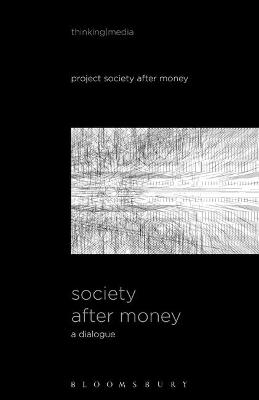
Society After Money
Bloomsbury Academic (Verlag)
978-1-5013-7400-5 (ISBN)
Society After Money is based on the premise that there might be a conflict between digital media/digital technology and the medium of money – and perhaps new digital possibilities that allow alternative forms of economy. It criticizes what is normally seen as self-evident and natural, namely that social coordination has to be done by the medium of money. We're left with a highly innovative collection of contributions that initiates a broader social discourse on the role of money in the global society of the 21st century.
“Project Society after Money” is an interdisciplinary project between commons theory (Stefan Meretz, Bonn), evolutionary economics (Manuel Scholz-Wäckerle, Vienna), media studies (Jens Schröter, Bonn) and sociology (Hanno Pahl, Munich), which was founded in 2016, funded by the VW foundation 2016-2018. It includes several additional researchers from the aforementioned fields. It’s aim is to discuss possible alternative economic forms beyond money. This research is highly relevant given the economic and ecological crisis.
Introduction
1. A Society After Money? Historical Position, Characteristics and Perspectives of Current Approaches to Post-Monetary Economic Activity (Lars Heitmann, Project Society After Money, Germany)
2. Concept and Crisis of Money
2.1 The Elephant in the Room: The Money Commodity and its Mysteries (Ernst Lohoff, editor of Krisis, Germany)
2.2 Monetary Mechanisms: Origins, Dynamics and Crisis (Tobias Kohl, author of Geld und Gesellschaft: Zu Entstehung, Funktionsweise und Kollaps von monetären Mechanismen, Zivilisation und sozialen Strukturen, 2015)
2.3 Trialogue: Money as Medium or as General Commodity? (Ernst Lohoff, editor of Krisis, Germany; Hanno Pahl, Ludwig Maximilian University of Munich, Germany; Jens Schröter, University of Bonn, Germany)
2.4 On the Possibility of a Society after Money: Evolutionary Political Economy, Economic Subjectivity and Planetary-Scale Computation (Ernest Aigner, Vienna University of Economics and Business, Austria, and Manuel Scholz-Wäckerle, Vienna University of Economics and Business, Austria)
3. Money as an Alien: Post-Monetary Elements in Utopian Literature and Science Fiction (Annette Schlemm, Independent Scholar, Germany)
4. Mediation After Money
4.1 A Critical View on the Criticism of Money (Christian Siefkes, independent scholar, Germany)
4.2 Categorical Foundations of a Post-Monetary Society (Stefan Meretz, co-founder of the German Commons Institute)
4.3 The Post-Capitalist Feminism Cookie. The Main Course: A Commons-Creating Peer Production as a Possible Future (Friederike Habermann, independent scholar, Germany)
4.4 Trialogue: Implicit and Explicit Views of Human Nature (Friederike Habermann, independent scholar, Germany; Stefan Meretz, co-founder of the German Commons Institute; Christian Siefkes, independent scholar, Germany)
5. Mediality After Money
5.1 Are We Approaching a Moneyless Society? (Peter Fleissner, TU Wein, Austria)
5.2 Money: For a Non-Money Economy (Stefan Heidenreich, University of Cologne, Germany)
5.3 Money and Digital Media (Jasmin Kathöfer, Braunschweig University of Art, Germany and Jens Schröter, University of Bonn, Germany)
Afterword (Anitra Nelson, RMIT University, Australia)
List of Contributors
Index
| Erscheinungsdatum | 30.10.2020 |
|---|---|
| Reihe/Serie | Thinking Media |
| Zusatzinfo | 7 bw illus, 2 tables |
| Verlagsort | New York |
| Sprache | englisch |
| Maße | 154 x 232 mm |
| Gewicht | 534 g |
| Themenwelt | Sozialwissenschaften ► Kommunikation / Medien ► Medienwissenschaft |
| Sozialwissenschaften ► Soziologie | |
| Wirtschaft ► Allgemeines / Lexika | |
| Wirtschaft ► Volkswirtschaftslehre | |
| ISBN-10 | 1-5013-7400-1 / 1501374001 |
| ISBN-13 | 978-1-5013-7400-5 / 9781501374005 |
| Zustand | Neuware |
| Informationen gemäß Produktsicherheitsverordnung (GPSR) | |
| Haben Sie eine Frage zum Produkt? |
aus dem Bereich


